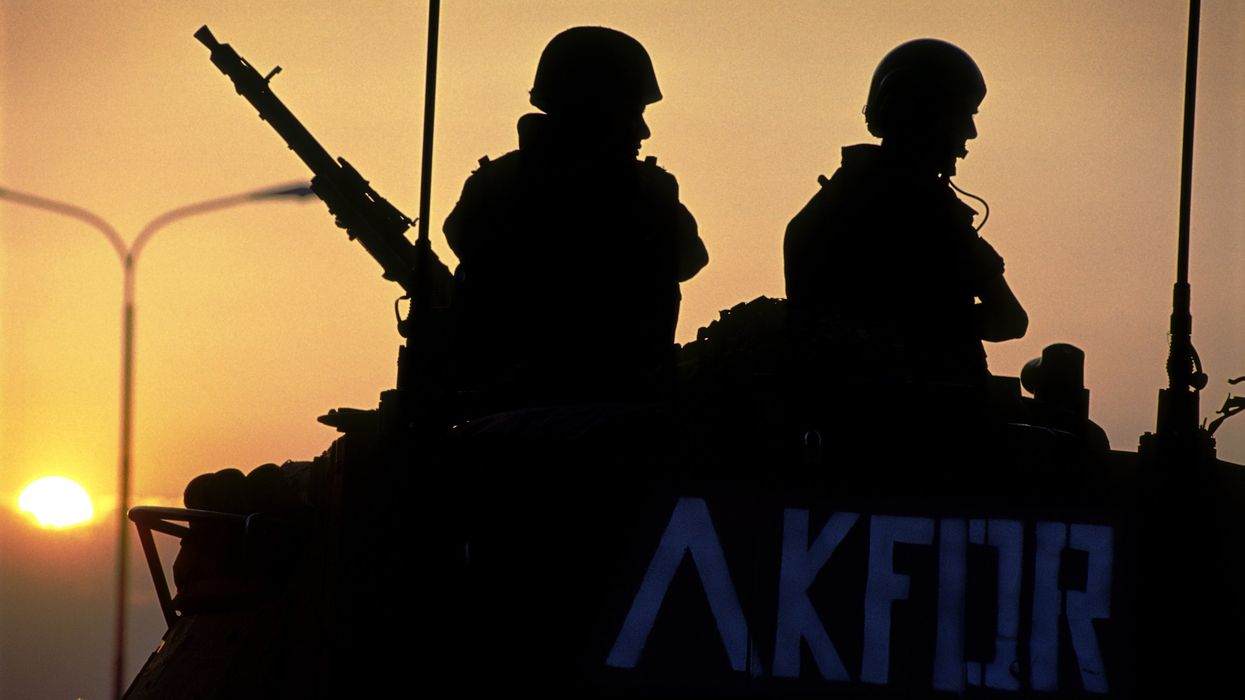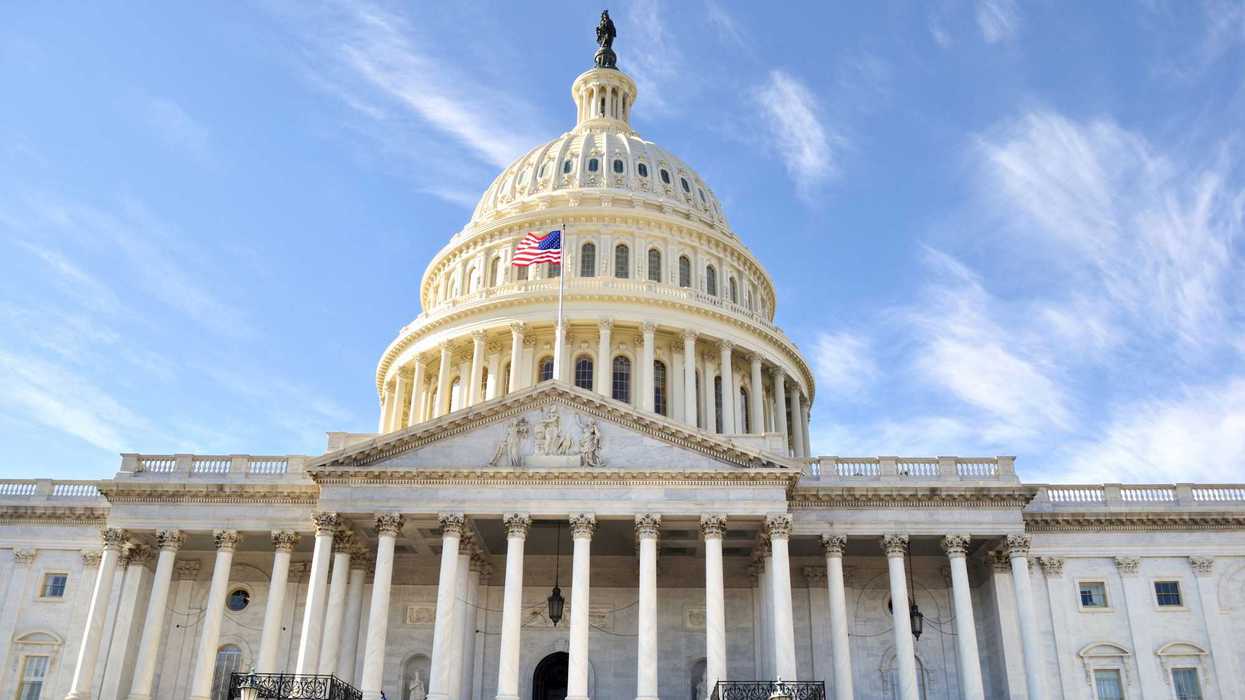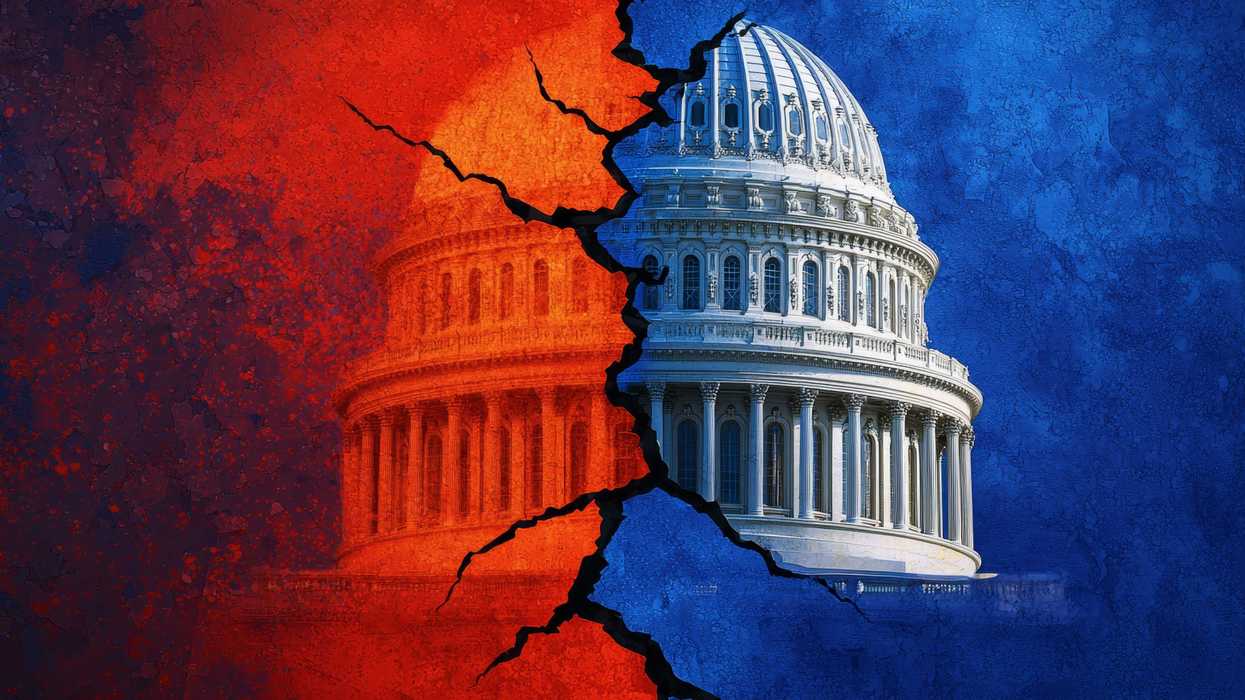WASHINGTON – Leaders representing the United States and Russia met this week to discuss an end to the war in Ukraine as European NATO leaders and the Ukrainians themselves were iced out of the negotiations despite their enormous stake in the issue. But it’s only one snub in a long line of affronts to NATO at the hands of President Donald Trump, dating back to his first term.
“NATO countries must pay MORE, the United States must pay LESS. Very Unfair!” Trump tweeted back in 2018. He accused member countries of not pulling their weight in defense spending, calling them “delinquent” and the alliance “obsolete.”
Since taking office for the second time last month, he has again singled out this issue. In a speech to the World Economic Forum in Davos just days after his inauguration, Trump demanded the alliance increase the target for defense spending to 5% of gross domestic product, more than double the current 2% guideline.
NATO introduced the 2% goal in 2014. At the time, only three of 28 member countries met that target; estimates for 2024 show 23 countries reaching it, out of 32 (four countries joined in the interim). It’s generally agreed that the jump over the last decade is likely due to several factors, including pressure applied by the Trump administration during its first term.
But even though NATO members’ defense spending is on the rise, Trump has made clear he believes it is not enough.
Why 5%?
“For a number of members of the alliance, that 5% number is eye-watering,” said Susan Colbourn, a professor at the University of Toronto whose research specializes in NATO and European security.
For reference: in 2024, the U.S. spent an estimated 3.4% of its GDP on defense – more than the 2% guideline but well short of the 5% Trump envisions.
Yet speaking to reporters after his comments in Davos, Trump declined to commit the U.S. to the 5% mark, setting up a double standard that will likely make the new 5% target a tough sell to allies.
“Nobody's going to go to 5% if we don't,” said Sen. Tim Kaine (D-Va.), who sits on the Senate Foreign Relations Committee.
Kaine and his committee colleague Sen. Pete Ricketts (R-Neb.) both acknowledged that NATO countries do need to spend more on defense, an assessment widely shared by experts.
“Increased defense spending, particularly by the non-U.S. members of the alliance, is absolutely a good investment and necessary,” said Colbourn.
Mark Rutte, the secretary general of NATO, has already indicated that defense spending must increase, and Colbourn expects the issue to be on the agenda at NATO’s June summit at The Hague.
How the additional funds should be spent remains unclear.
“You shouldn’t increase defense spending just to increase defense spending,” said Katherine Dahlstrand, a fellow at the Center for Strategic and Budgetary Assessments. “You should be doing so with a clear goal in mind as to where you're going to put that money. What can I spend it on?“
Dahlstrand said that much of that money should be going towards equipment, including air defense and munitions stock. Currently, NATO policy commits members to putting 20% of their defense spending towards new equipment.
The Future of NATO
“The cynical interpretation,” said Colbourn, “is that 5% is calibrated intentionally to be so high that it is impossible for the allies to meet, and then could be used as a pretext for President Trump to in some way revise or overhaul the United States participation in NATO.”
During his first term, Trump reportedly discussed pulling the U.S. out of NATO with aides on multiple occasions. The current Trump administration did not respond to multiple requests for comment.
An exit via executive order, however, is no longer an easy option. A bill passed by Congress in 2023 included a measure, introduced by Sen. Kaine and former senator and now Secretary of State Marco Rubio, requiring a two-thirds Senate majority to withdraw from NATO.
But Trump doesn’t need to officially pull the U.S. out of NATO to cause serious damage to the alliance, Colbourn said.
The backbone of NATO is Article V of its charter, the mutual self-defense clause that calls on all members to come to the aid of any one member country that is attacked.
But each time Trump threatens America’s commitment to NATO allies, for example, by questioning America’s Article V pledge or contemplating the seizure of Greenland, a territory belonging to NATO member Denmark, the damage is felt, said Colbourn.
“All of those signals and statements erode the credibility of the alliance itself,” Colbourn said. “It's ultimately based on things like trust and confidence that the core pledge at the heart of the treaty will work.”
If NATO falls apart, she said, it would put the world in “a period of considerable realignment in the overall patterns of international politics.”
With Russia’s war in Ukraine ongoing and China sizing up Taiwan, she noted parallels to the world order of the 19th century, when great powers carved up the globe into spheres of influence. The delicacy of this moment is not lost on lawmakers.
“At this critical moment, when Vladimir Putin continues to inflict his campaign, his war against democracy, we need that NATO commitment to be stronger than ever,” said Rep. Gabe Amo (D-R.I.), the vice ranking member of the House Foreign Affairs Committee.
“And at the end of the day, this is about our allies,” he added. “A safe Europe means a safe America.”
Sasha Draeger-Mazer is a national security reporter for Medill News Service and studies journalism and political science at Northwestern University.



















 Mayor Ravi Bhalla. Photo courtesy of the City of Hoboken
Mayor Ravi Bhalla. Photo courtesy of the City of Hoboken Washington Street rain garden. Photo courtesy of the City of Hoboken
Washington Street rain garden. Photo courtesy of the City of Hoboken
